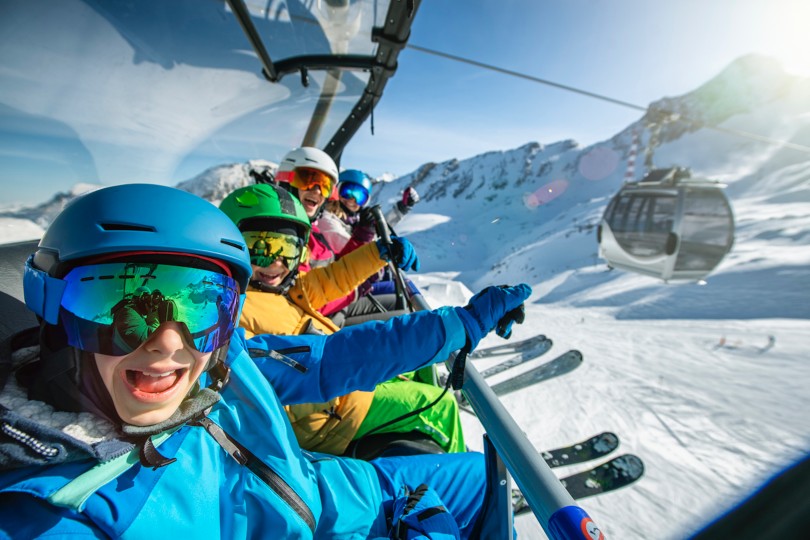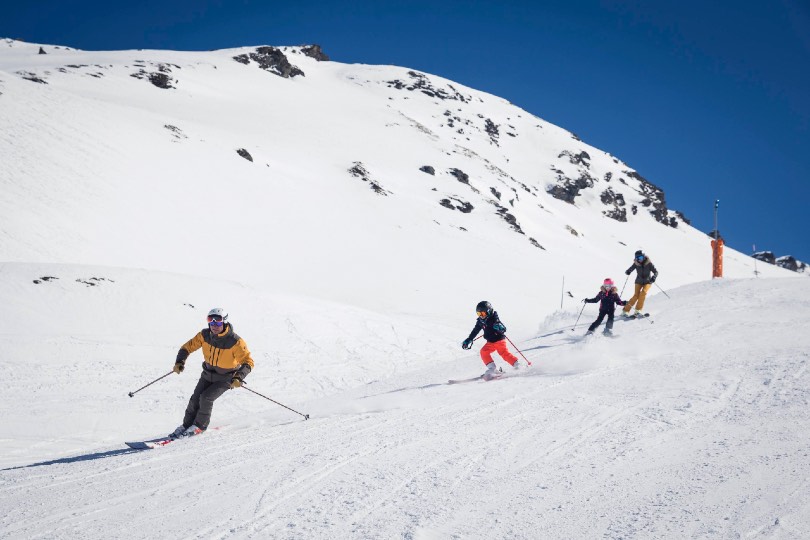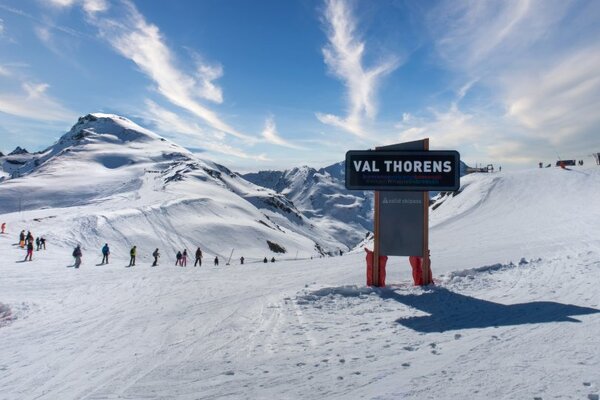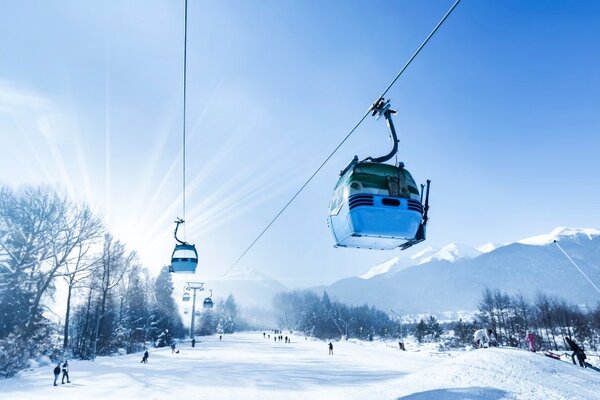Value message critical as ski market returns to ‘familiar patterns’
 Rob Gill
Rob GillSki specialists have enjoyed strong early sales for the upcoming winter sports season, but there are signs customers are still closely monitoring what they spend amid the ongoing squeeze on disposable income.
After the bumper 2022/23 season, which saw skiers and snowboarders return to the slopes en masse for the first time since the onset of Covid-19, agents and operators tell TTG there are signs of “more normal” booking patterns for the year ahead.
But there are also indications that high inflation is impacting ski customers’ decisions in terms of which resort resorts they book this winter, as well as what sort of properties and on what board basis – particularly with the price of certain essentials, such as lift passes – having soared in some big-name resorts.
‘Familiar patterns’
Diane Palumbo, Skiworld sales and marketing director, told TTG overall sales "were not as good as this time last year”. But this was in comparison to the 2022/23 “super hero” season, which saw customers rush to book their first ski holidays in years.
“We’re now in a much more familiar booking pattern and we’re currently a little bit up on the pre-Covid seasons of 2018/19 and 2019/20,” she said. “There’s more availability now than a year ago, although flights are still tight and prices are higher. Overall prices are probably up by around 7-8% on average compared with last season, although on some dates that could go up to 12%.”
Crystal Ski described bookings for the coming winter as “really strong”, recording its "biggest days ever" for bookings to both Austria and Italy during the week of 31 July to 4 August.
“We’re also seeing a trend towards an increase in volume for groups bookings, which is up more than average by around 17%,” a Crystal Ski Holidays spokesperson told TTG. “Couples and single parent bookings are also up by 15% and 25% respectively.”
Club Med, meanwhile, said UK bookings for 2023/24 were "exceeding expectations", up 16% compared with the same stage last year. Nicolas Bresch, managing director UK, Ireland and Nordics, highlighted demand for February half-term in particular, "with almost all resorts near capacity".
Value paramount
However, operators are having to stimulate the market with offers after year-on-year prices increases, and as consumers seek more value – such as the certainty offered by more inclusive packages.
“Current market conditions mean prices across the industry have increased," Crystal’s spokesperson continued. "However, we do everything we can to continuously improve value, such as offering low deposits, promotional offers on lift passes, like our buy-one-get-one-half price lift pass offer that is currently running, and free child places."
Even in the luxury ski market, the cost of living crisis is having an impact, with some customers looking for different options away from the most expensive resorts. Rupert Longsdon, chief executive of Oxford Ski Company, said that prices had risen by around 5-10% compared with last season – a higher annual increase than was typical during the pre-Covid period.
“It’s not putting our clients off from booking because there is less impact at the high end but everybody is still impacted,” Longsdon explained. “People are asking, ‘where can we find the value?’ They are thinking about not going to the most expensive resorts, so we’re seeing more interest in satellite resorts that are still attached to major ski areas.”
‘Hedging costs’
Specialist ski Helen Furlong, who is a Co-op Personal Travel Agent, told TTG her ski business had been “quite buoyant” recently, with July “being a really good month” for bookings from families and groups – helped by Crystal’s lift pass promotion.
“I’ve been selling a lot of Italy – particularly the Milky Way region where the cost of lift passes is much lower,” she said. “Lift pass prices are having a massive impact, they’re well over £300 for six days in many places now – but they are only about £200 in the Milky Way.
“The passes can be up to a third of the cost of the holiday. I like to quote the price at the time of booking to give them the full picture. All-inclusives are always attractive as more costs are upfront and there are no nasty surprises like a big bar bill at the end of the holiday.”
Another ski specialist, Travel Counsellor Aaron Caddell, also hailed Crystal’s lift pass offer for helping stimulate demand this summer – particularly from the groups market. “That had a massive impact in July,” he said. “These offers are great for groups of 14-20 people because you get £150 off lift passes, as well as the group discounts. There are also some great deals on flights to Turin for groups.”
Club Med’s Bresch added customers were booking early on an all-inclusive basis to "hedge" against increased flight costs and inflation.
High hopes
Demand remains strong for higher “snow sure” resorts in the Alps, particularly during the key school holiday periods around Christmas and February half-term.
It follows the images and footage of bare ski slopes that featured heavily in the consumer media earlier this year, despite most of these resorts being in low-lying areas not featured by UK operators.
“There’s strong demand for high snow sure resorts as last year the snow was a bit late in coming – particularly for Val Thorens and the Three Valleys,” added Skiworld’s Palumbo. “We always find people book based on the previous year’s snowfalls.”
Skiworld has also seen more interest in long-haul trips to resorts in North America for the coming season, which Palumbo said may have been boosted by the “perception about the snow in Europe” last season.
Meanwhile, Crystal said that its three most popular destinations for 2023/24 were all higher resorts known for having good snow, particularly early and late in the season – Val Thorens and La Plagne in France, plus Obergurgl in Austria. The Tui-owned operator has also tracked a surge in demand for both Andorra and Finland.
Club Med provided a similar outlook, with its higher altitude, snow-sure resorts like Val d'Isere (up 102% year-on-year) and Tignes (up 74% year-on-year) proving particularly popular for Christmas, and Tignes for late season snow through to the Easter holidays.
"Last season, we saw some great late snow conditions through March and April, and we’re now seeing customers booking with optimism for the same again next year," added Club Med's Bresch. "Bookings for the last week of March and Easter week are up by 30% versus last year."
The ski market seems to be a good position so far – even if it may ultimately be hard to match last year’s barnstorming return to the slopes – but the key post-summer booking months of September and October lie ahead.
With consumers' finances squeezed, operators and agents may have to work hard to keep the momentum going – and be ready to offer the kind of added value ski customers will be seeking this winter.
Sign up for weekday travel news and analysis straight to your inbox

Rob Gill
Supplier Directory
Find contacts for 260+ travel suppliers. Type name, company or destination.
















